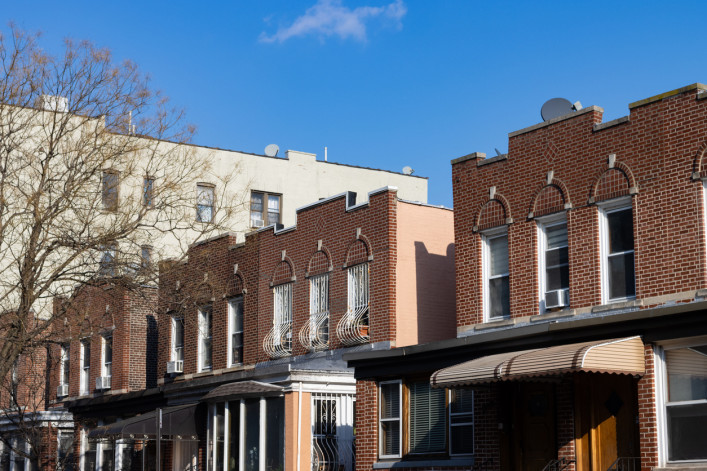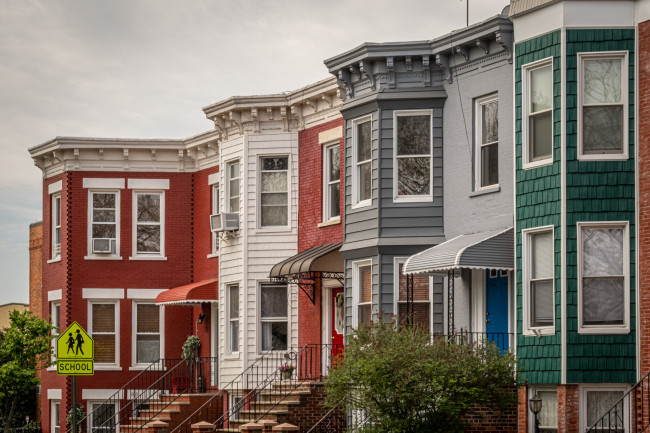How to slay a zombie second mortgage and protect yourself from foreclosure
- Debt buyers are coming after second mortgages owners thought were covered by loan modifications or forgiven
- NPR found at least 10,000 old second mortgages in New York with foreclosure activity initiated recently

When owners fall behind on payments or are in foreclosure, that information is made public and may entice scam artists.
iStock
Some owners are getting the shock of a lifetime when they open their mail and find out that a debt buyer is initiating legal action or starting a foreclosure process over a second mortgage they thought was long forgiven.
Meet the zombie second mortgage, a catchy phrase for a real-life nightmare. A recent NPR investigation brought to light the aftermath of a dubious practice from the pre-2008 housing bubble: Second loans that enabled borrowers to use smaller down payments or avoid them completely. Debt buyers are now coming after these second mortgages that owners thought had been covered by subsequent loan modifications or even forgiven—often because their financial obligations were not fully explained or because they were told the loan would “disappear.”
Once considered largely worthless because they were not likely to get paid in a bankruptcy proceeding—second mortgages are now valuable because of today's much higher prices for properties. Owners across the U.S. are finding out they still owe the original amount of the second loan, plus tacked-on interest and late fees. In some cases, debt buyers are moving to foreclose on the properties.
The NPR investigation found at least 10,000 old second mortgages in New York State with foreclosure activity initiated in just the past two years. The loans date back to the subprime-lending bubble from 2004 to 2008, the article said.
Attorneys at Legal Services NYC estimate that a majority of those old New York State second loans are in New York City—that’s where its Homeowner Protection Program network sees the most such cases, according to Ari Feldman, communications officer at the organization, which provides free legal services for low-income New Yorkers.
Brick spoke to Rachel Geballe, deputy director of Legal Services NYC's Neighborhood Economic Justice Project, to find out to do when owners are faced with a zombie second mortgage.
Don’t ignore debt collection notices.
If you get papers regarding a default or a foreclosure, you need to respond right away, Geballe said.
And if you get a notice from the court, you need to attend. “The court wants to see that you are present, and this is also a way to get legal services,” she said.
In addition, Geballe said owners can call 311 and get connected with a network of free legal advocates. (“Free” is important; more on that below.) If your property is put into pre-foreclosure, you’ll be provided with a list of housing counselors and legal service providers.
“Start calling,” she said. “You can’t fight this alone.”
There’s a network of housing attorneys in NYC available to fight on your behalf, she noted. Legal assistance is free for low- and moderate-income owners thanks to state funding. (If you have a high income, you will be provided with advice.)
“We’re very connected—if a housing counselor has a legal question, they are connected to us,” Geballe said.
Don’t assume it’s a scam
Geballe told Brick that many owners don’t recognize the name of the debt buyer attempting to collect, and so they ignore the communication.
But just because there’s an unfamiliar name “doesn’t necessarily mean there is a scam. Mortgage debt owners and loan servicers can both change,” she said.
Be wary of unsolicited offers to help
Unfortunately, owners don't realize how exposed they are to real con artists at this stage.
When owners fall behind on payments or are in foreclosure, that information is made public and may entice scam artists. Owners will start to get flyers at home and knocks on the door with offers of assistance in exchange for a fee of $1,000, for example, to “help save your house.”
That should be your first clue that these are scam artists at work. Owners “get bombarded,” with these offers, Geballe said.
“The help should be free because the state has funded assistance programs,” she added.
Check your statements
One of Geballe’s clients never received a single mortgage statement on their second loan, so it was “a total and complete shock when they were sued.”
Other common scenarios include borrowers who were under the assumption that a loan modification for their first mortgage meant they didn’t need to pay the second mortgage.
“Maybe you got a statement from the first but didn’t get a statement from the second. In many cases, the second was worthless, over appraised, or unsecured. Nobody was thinking they could collect on them,” she said—referring to lenders.
Legally speaking, borrowers were always responsible for repaying their loans, but many borrowers, often in communities of color, didn’t understand what they were getting into. In some cases, they were not given a chance to read the documents before they signed.
“This is not the way mortgage loans should have been made,” Geballe said. Most of the time owners “are shocked to get collection notices for something they haven’t seen in a decade and a half.”
Unfortunately, when debt buyers, usually LLCs, buy up foreclosures, they do not provide an opportunity for borrowers to catch up. But attorneys have found a tool to keep zombie mortgages at bay.
Force the debt buyer to show their hand
Typically, when borrowers stopped making payments and went into default on the second loan, the statements stopped arriving, which is why so many owners are taken by surprise.
But borrowers are supposed to receive regular statements about their real estate loans, thanks to federal regulations that have been modified into “The Know Before You Owe” mortgage disclosure rule. In 2015, the rule was updated to include borrowers who are in default.
The absence of a paper trail has been the key to pushing back against zombies, Geballe explained.
“These LLCs are pretty sloppy and don’t [always] have the documentation to prove they now own the loans,” she said.
In one case, during a deposition it became clear that the debt buyer didn’t have the necessary documents to prove they held the loan. They withdrew the suit but are expected to try again.
She said outmaneuvering a debt buyer doesn’t resolve the initial debt, but it can forestall foreclosure.
“For the people we’ve worked with, I don’t think we’ve lost a single [property] yet,” she said.
Get out in front of the problem
If you suspect you still have a second loan but haven’t received any communication about it, don’t wait.
“It’s good to speak to a lawyer if you think there may be debt out there. The earlier you can address it, the better,” she said.



























